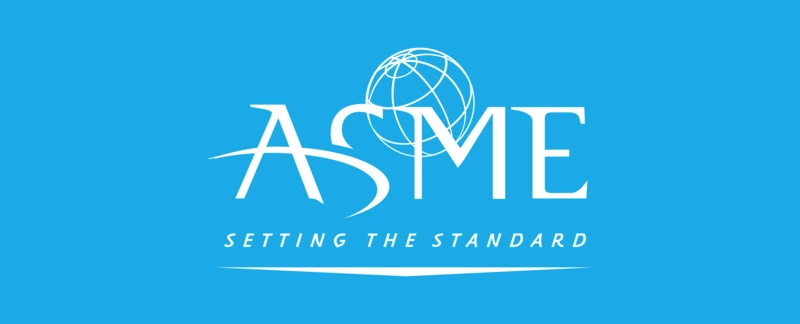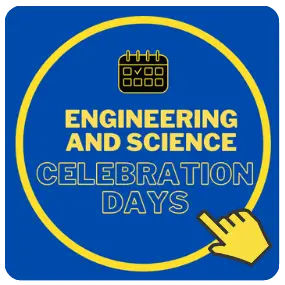Mechanical engineering is one of the oldest and most versatile engineering disciplines. Mechanical engineers do make a difference; they build and power the machines we use in our day-to-day life. The field of mechanical engineering touches almost every aspect of modern life, including the human body, a highly complex and extraordinary machine.
But with great power comes great responsibility.
That’s why every mechanical engineer needs a code of ethics. The ASME code of ethics lays out the responsibilities and expectations that mechanical engineers have to their clients, employers, colleagues, and society as a whole. It helps them make the right decisions even when they’re not easy.
In this blog, we will discuss the ASME code of ethics for mechanical engineers. Let’s start by learning more about those who work in the field of mechanical engineering.
Table of Contents
1. Who are mechanical engineers?
2. American Society of Mechanical Engineers (ASME)
3. ASME Code of Ethics
Who are mechanical engineers?

Mechanical engineers use the principles of motion, energy, and force to engineers analyze the work of machines and ensure that designs function safely, proficiently, and reliably, all at a reasonable cost.
They are involved in the design of a component, a machine, a system, and a process both on macro and micro scales, from largest systems like submarine navy and satellites to the tiniest components such as switches and sensors.
Mechanical engineers execute a variety of tasks
Mechanical engineers execute a variety of tasks, including designing and overseeing the manufacturing of machinery, equipment, and systems. This also includes solving contemporary problems and creating economic solutions in health care, energy systems, transportation, world hunger, space exploration, climate change, and so on.
In addition to this, mechanical engineers play key roles in various industries including automotive, aerospace, biotechnology, computers, electronics, micro-electromechanical systems, energy conversion, robotics and automation, and manufacturing.
Also read: All You Should Know About Mechanical Engineering
Why is a code of ethics important for mechanical engineers?

Engineering ethics is an important part of engineering education in all disciplines. Engineers in every discipline must maintain a professional behavior that conforms to the highest standards of ethical behavior.
A code of ethics is important for mechanical engineers because it helps to guide their professional behavior. It provides a set of principles that they can use to make decisions, and it helps to ensure that they are acting in the best interests of their clients and the public. A code of ethics also provides a framework for handling ethical dilemmas, which can be difficult to navigate in complex engineering projects.
Additionally, mechanical engineers develop machines and systems that can have an enormous impact on the quality of people’s lives. Since these machines and systems impact people, engineers must always be mindful of the ethical implications of their work and behave with the utmost integrity.
Also Read: Engineering ethics [what is it and why is it important]
American Society of Mechanical Engineers (ASME)

ASME, founded in 1880 as the American Society of Mechanical Engineers, is a not-for-profit professional organization that allows for engineering collaboration, knowledge sharing, and skill development across all disciplines while also emphasizing the importance of engineers in society.
ASME serves a wide-ranging engineering community through quality learning, the development of codes and standards, certifications, research, conferences and publications, government relations, and other forms of outreach.
As a leading organization for mechanical engineers, the mission of ASME is to advance engineering for the benefit of humanity. ASME has 90,000+ members from more than 135 countries around the world.
ASME Code of Ethics
Each professional engineering organization has a set of rules and standards for its members. ASME is the leading organization for mechanical engineers. The ASME code of ethics is a set of fundamental principles that guide how mechanical engineers should behave in their professional practice.
The code is important for ASME members because it helps to ensure that they are always acting in the best interests of their clients and the public as well as striving to uphold their professional image as engineers. By requiring ethical practice, ASME protects its members from damage to their profession and encourages high standards in their work.
ASME requires ethical practice and professional conduct by each of its members and has a set of mechanisms to enforce this. The ASME code of ethics has two sections, The Fundamental Principles, and The Fundamental Canons.
Here is a copy of the most recent ASME codes of ethics: [1]
The Fundamental Principles
Engineers uphold and advance the integrity, honor, and dignity of the engineering profession by:
I. using their knowledge and skill for the enhancement of human welfare;
II. being honest and impartial, and serving with fidelity their clients (including their employers) and the public; and
III. striving to increase the competence and prestige of the engineering profession.
The Fundamental Canons
1. Engineers shall hold paramount the safety, health and welfare of the public in the performance of their professional duties.
2. Engineers shall perform services only in the areas of their competence; they shall build their professional reputation on the merit of their services and shall not compete unfairly with others.
3. Engineers shall continue their professional development throughout their careers and shall provide opportunities for the professional and ethical development of those engineers under their supervision.
4. Engineers shall act in professional matters for each employer or client as faithful agents or trustees, and shall avoid conflicts of interest or the appearance of conflicts of interest.
5. Engineers shall respect the proprietary information and intellectual property rights of others, including charitable organizations and professional societies in the engineering field.
6. Engineers shall associate only with reputable persons or organizations.
7. Engineers shall issue public statements only in an objective and truthful manner and shall avoid any conduct which brings discredit upon the profession.
8. Engineers shall consider environmental impact and sustainable development in the performance of their professional duties.
9. Engineers shall not seek ethical sanction against another engineer unless there is good reason to do so under the relevant codes, policies and procedures governing that engineer’s ethical conduct.
10. Engineers who are members of the Society shall endeavor to abide by the Constitution, By-Laws and Policies of the Society, and they shall disclose knowledge of any matter involving another member’s alleged violation of this Code of Ethics or the Society’s Conflicts of Interest Policy in a prompt, complete and truthful manner to the chair of the Ethics Committee.
Also read: Best Online Engineering Ethics Courses
References:
[1] https://www.asme.org/wwwasmeorg/media/resourcefiles/aboutasme/get%20involved/advocacy/policy-publications/p-15-7-ethics.pdf




![Types of Engineers and What they Do [Explained]](https://www.engineeringpassion.com/wp-content/uploads/2022/04/types-of-engineers-and-what-they-do-280x210.jpg)





Leave a Reply